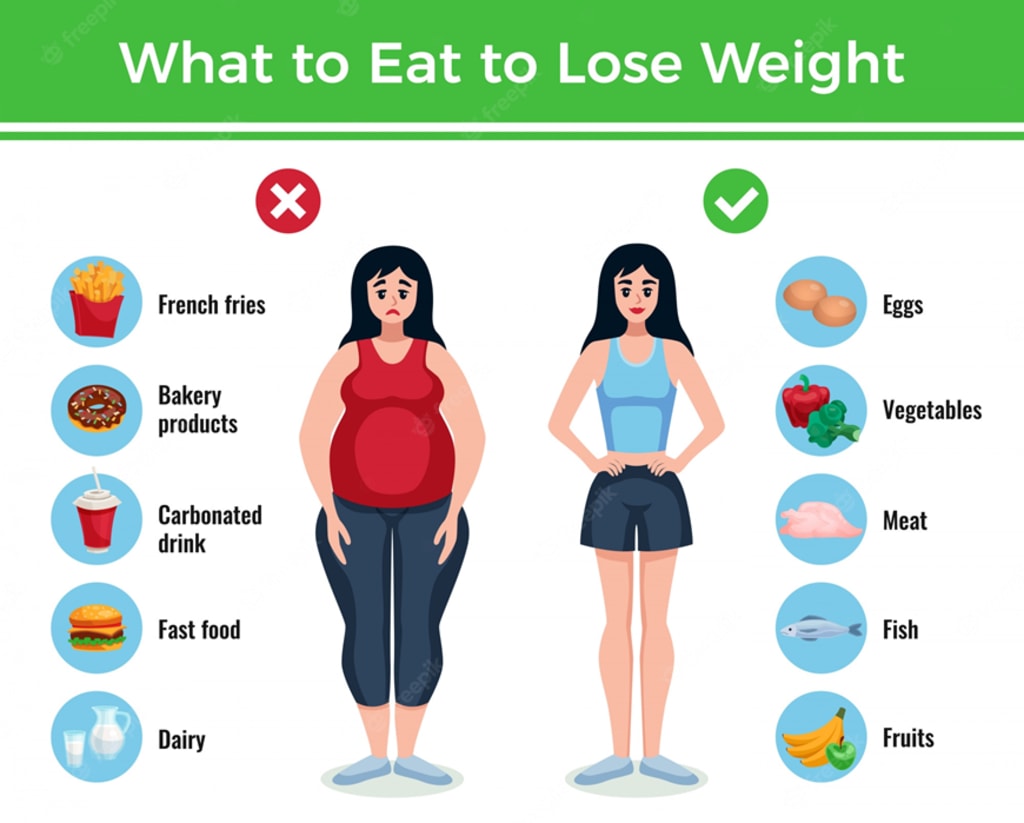Lose weight – Better Health

Lose weight - Better Health
The Benefits of Losing Weight for Improved Health
Losing weight is often associated with achieving a desired physical appearance, but the benefits of shedding those extra pounds go far beyond just looking good. In fact, losing weight can have a significant impact on your overall health and well-being. So, if you’ve been contemplating embarking on a weight loss journey, here are some compelling reasons why it’s worth it for your health.
First and foremost, losing weight can reduce your risk of developing chronic diseases. Excess weight is closely linked to conditions such as heart disease, type 2 diabetes, and certain types of cancer. By shedding those extra pounds, you can significantly lower your chances of falling victim to these life-threatening illnesses. It’s like giving your body a shield against these health risks.
Furthermore, losing weight can improve your cardiovascular health. Carrying excess weight puts a strain on your heart, making it work harder to pump blood throughout your body. This can lead to high blood pressure, which is a major risk factor for heart disease. By losing weight, you can relieve this burden on your heart, allowing it to function more efficiently and reducing your risk of heart-related problems.
In addition to benefiting your heart, losing weight can also have a positive impact on your joints. Carrying excess weight puts extra stress on your joints, particularly your knees and hips. This can lead to joint pain and increase your risk of developing conditions such as osteoarthritis. By shedding those extra pounds, you can alleviate this pressure on your joints, reducing pain and improving your mobility.
Another significant benefit of losing weight is improved sleep quality. Excess weight can contribute to sleep apnea, a condition characterized by pauses in breathing during sleep. This can lead to daytime fatigue, difficulty concentrating, and an increased risk of accidents. By losing weight, you can reduce the severity of sleep apnea symptoms and enjoy a more restful night’s sleep, leading to increased energy and improved overall well-being.
Moreover, losing weight can have a positive impact on your mental health. Research has shown that there is a strong link between obesity and mental health issues such as depression and anxiety. Losing weight can boost your self-esteem and confidence, leading to improved mental well-being. Additionally, engaging in regular physical activity, which is often a part of weight loss efforts, releases endorphins, the feel-good hormones, which can help alleviate symptoms of depression and anxiety.
Lastly, losing weight can improve your overall quality of life. Carrying excess weight can limit your mobility and make it difficult to engage in physical activities that you enjoy. By shedding those extra pounds, you can increase your energy levels, improve your fitness, and enhance your ability to participate in activities that bring you joy. Whether it’s playing with your kids, going for a hike, or simply feeling more comfortable in your own skin, losing weight can open up a world of possibilities and make every day more enjoyable.
In conclusion, losing weight goes beyond just achieving a desired physical appearance. It can have a profound impact on your health and well-being. From reducing your risk of chronic diseases to improving your cardiovascular health, joint health, sleep quality, mental health, and overall quality of life, the benefits of shedding those extra pounds are undeniable. So, if you’ve been considering embarking on a weight loss journey, remember that you’re not just doing it for the way you look, but for the better health and improved well-being that awaits you.
Effective Strategies for Losing Weight and Improving Overall Health
Losing weight and improving overall health are two goals that often go hand in hand. Whether you want to shed a few pounds for aesthetic reasons or to improve your overall well-being, there are several effective strategies that can help you achieve your goals. In this article, we will explore some of these strategies and discuss how they can contribute to better health.
One of the most important aspects of losing weight is adopting a healthy and balanced diet. This means incorporating a variety of fruits, vegetables, whole grains, lean proteins, and healthy fats into your meals. By focusing on nutrient-dense foods, you can ensure that your body is getting the necessary vitamins and minerals it needs to function optimally. Additionally, eating a balanced diet can help regulate your blood sugar levels, reduce cravings, and provide sustained energy throughout the day.
Portion control is another key factor in weight loss and overall health. It’s easy to overeat when faced with large portions or when indulging in your favorite foods. However, by practicing portion control, you can still enjoy your favorite meals while keeping your calorie intake in check. One effective strategy is to use smaller plates and bowls, which can trick your brain into thinking you’re eating more than you actually are. Additionally, taking the time to savor each bite and eating slowly can help you feel more satisfied with smaller portions.
Regular physical activity is crucial for both weight loss and overall health. Engaging in regular exercise not only burns calories but also strengthens your muscles, improves cardiovascular health, and boosts your mood. Finding an activity that you enjoy, whether it’s jogging, swimming, dancing, or playing a sport, can make it easier to stick to a consistent exercise routine. Aim for at least 150 minutes of moderate-intensity aerobic activity or 75 minutes of vigorous-intensity aerobic activity per week, along with strength training exercises at least twice a week.
In addition to diet and exercise, it’s important to prioritize sleep and manage stress levels. Lack of sleep can disrupt your metabolism and increase cravings for unhealthy foods, while chronic stress can lead to emotional eating and weight gain. Aim for seven to nine hours of quality sleep each night and find healthy ways to manage stress, such as practicing mindfulness, engaging in hobbies, or seeking support from loved ones.
Another effective strategy for weight loss and better health is to stay hydrated. Drinking an adequate amount of water throughout the day can help curb hunger, boost metabolism, and improve digestion. Aim to drink at least eight cups of water per day, and consider replacing sugary beverages with water or herbal tea.
Lastly, it’s important to set realistic goals and be patient with yourself. Weight loss and improving overall health take time and effort, and it’s important to celebrate small victories along the way. Remember that everyone’s journey is unique, and what works for one person may not work for another. Listen to your body, make adjustments as needed, and focus on progress rather than perfection.
In conclusion, losing weight and improving overall health require a combination of healthy eating, regular exercise, adequate sleep, stress management, hydration, and patience. By adopting these strategies and making them a part of your lifestyle, you can achieve your weight loss goals while also improving your overall well-being. Remember, it’s not just about the number on the scale, but about feeling your best and living a healthier, happier life.
How to Maintain a Healthy Weight for Long-Term Health Benefits
Losing weight is a goal that many people have, and for good reason. Not only does shedding those extra pounds make you feel better about yourself, but it also has numerous health benefits. Maintaining a healthy weight is essential for long-term health, and in this article, we will discuss some tips on how to achieve and sustain a healthy weight.
First and foremost, it’s important to understand that losing weight is not just about looking good. It’s about taking care of your body and ensuring that it functions optimally. When you carry excess weight, you put strain on your joints, heart, and other vital organs. By shedding those extra pounds, you can reduce the risk of developing chronic conditions such as heart disease, diabetes, and high blood pressure.
So, how can you maintain a healthy weight for the long term? The key is to adopt healthy habits that you can stick to. Crash diets and extreme exercise regimens may yield quick results, but they are not sustainable in the long run. Instead, focus on making small, gradual changes to your lifestyle that you can maintain over time.
One of the most important aspects of maintaining a healthy weight is eating a balanced diet. This means consuming a variety of nutrient-rich foods in appropriate portions. Instead of depriving yourself of certain foods, aim for moderation and portion control. Fill your plate with colorful fruits and vegetables, lean proteins, whole grains, and healthy fats. And don’t forget to stay hydrated by drinking plenty of water throughout the day.
In addition to eating well, regular physical activity is crucial for maintaining a healthy weight. Find activities that you enjoy and make them a part of your daily routine. Whether it’s going for a walk, dancing, swimming, or playing a sport, find something that gets you moving and stick with it. Aim for at least 150 minutes of moderate-intensity exercise per week, or 75 minutes of vigorous-intensity exercise if you prefer a more intense workout.
Another important factor in maintaining a healthy weight is getting enough sleep. Lack of sleep can disrupt your hormones and lead to weight gain. Aim for seven to eight hours of quality sleep each night to ensure that your body functions optimally. Establish a bedtime routine, create a comfortable sleep environment, and limit your exposure to electronic devices before bed to promote better sleep.
In addition to these lifestyle changes, it’s important to surround yourself with a supportive network. Having a support system can make a world of difference when it comes to maintaining a healthy weight. Seek out friends, family members, or even online communities who share your goals and can provide encouragement and accountability.
Lastly, be patient with yourself. Losing weight and maintaining a healthy weight is a journey, not a destination. There will be ups and downs along the way, but the key is to stay committed and focused on your long-term health goals. Celebrate your successes, no matter how small, and learn from any setbacks.
In conclusion, maintaining a healthy weight is essential for long-term health benefits. By adopting healthy habits such as eating a balanced diet, engaging in regular physical activity, getting enough sleep, and surrounding yourself with a supportive network, you can achieve and sustain a healthy weight. Remember, it’s not just about looking good, but about taking care of your body and ensuring that it functions optimally. So, start making small, gradual changes today and reap the long-term health benefits of a healthy weight.







